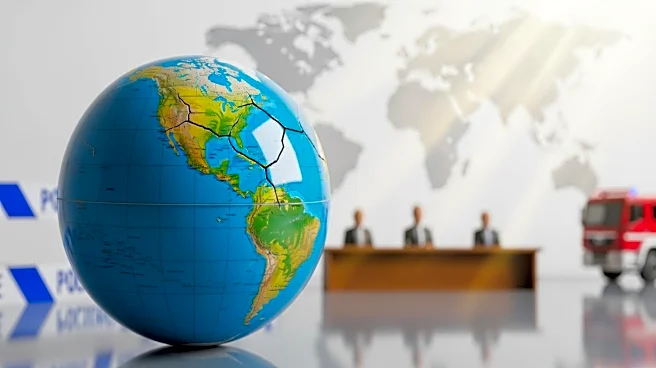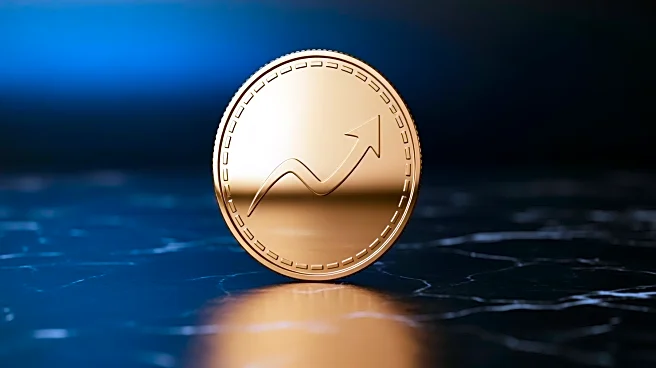What's Happening?
Kirill Dmitriev, Russian President Vladimir Putin’s special envoy for investment and economic cooperation, has stated that Russia, the US, and Ukraine are nearing a diplomatic resolution to end the ongoing conflict in Ukraine. Dmitriev, who is currently
in Washington for discussions with US officials, refuted claims that a planned meeting between President Trump and Putin had been canceled. The meeting, initially set for Budapest, was postponed after Russia rejected an immediate ceasefire, a decision that President Trump cited as a reason for the delay. Despite the setback, Dmitriev expressed optimism about reaching a diplomatic solution, although he did not provide specific details about the potential agreement. European diplomats are reportedly working with Ukraine on a new ceasefire proposal along current battle lines, aiming to keep the US engaged while acknowledging the situation on the ground.
Why It's Important?
The potential diplomatic resolution to the conflict between Russia, the US, and Ukraine is significant as it could lead to a de-escalation of tensions in Eastern Europe. The ongoing war has had substantial geopolitical implications, affecting international relations and economic sanctions. A resolution could stabilize the region and potentially ease the economic burden caused by sanctions, which have impacted global oil markets and consumer prices. The US has imposed severe sanctions on Russia's largest oil companies, aiming to weaken the Kremlin's war funding capabilities. However, these sanctions could also affect American consumers by increasing gasoline prices. The diplomatic efforts underscore the importance of international cooperation and negotiation in resolving complex geopolitical conflicts.
What's Next?
Dmitriev is expected to meet with Trump’s special envoy Steve Witkoff in Miami, and additional meetings are planned during his visit. The US continues to impose sanctions on Russia, with a focus on global compliance, particularly from major buyers of Russian oil like China and India. President Trump is on a tour of Asia, where he will meet with Chinese President Xi Jinping to discuss trade disputes and China's purchase of Russian oil. The outcome of these discussions could influence the diplomatic efforts and the broader geopolitical landscape. The US Treasury has warned foreign banks against helping Moscow evade sanctions, indicating potential financial repercussions for non-compliance.
Beyond the Headlines
The ongoing conflict and diplomatic negotiations highlight the complex interplay between geopolitical strategies and economic interests. The sanctions imposed by the US are designed to pressure Russia economically, but they also risk affecting global oil prices and consumer costs. The diplomatic efforts reflect the challenges of balancing national interests with international peace and stability. The situation underscores the importance of strategic diplomacy and the potential for long-term shifts in international alliances and economic policies.















